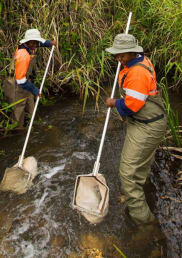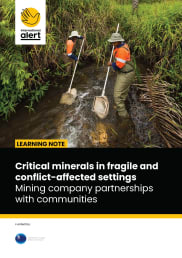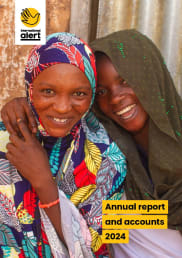Technology and peacebuilding: Can an app stop a bullet?

At International Alert, we’ve been building peace for nearly 30 years. In this time, we’ve engaged in dialogue with millions of people affected by violent conflict and have built a strong reputation with our research and programme work.
Over the last few years at Alert, I’ve been exploring how technology can complement and strengthen our work as well as investigating where technology can have a negative influence on peacebuilding, including the use of technology in organised crime and violent extremism.
I’ve been hugely inspired by the work of the Build Peace team, especially the amazing Helena Puig Larrauri, and have recently returned from the second Build Peace conference in Cyprus, full to the brim with new ideas and inspiration from hundreds of like-minded individuals.
After returning from Cyprus, I chaired a lunchtime learning session with Alert colleagues to share our learning and the first thing that hit me was just how many people were in attendance. Evidence, if it was ever needed, that Alert is really looking to technology to help us with our programming.
Alert has already done some great work with technology in peacebuilding: we’ve been proponents of open data (information available to anyone), for example with the Bangsamoro Conflict Monitoring System.
A really exciting project I’m proud to be leading on at the moment is looking at using big data (large amounts of data used to monitor or predict trends). We are currently piloting a project in Nigeria to see how this can complement our research, as well as helping with monitoring our impact. Our friends at Zühlke Engineering have also blogged about this project and it is well worth a read.
Another project I’ve been privileged to lead is the Alert #PeaceHack, a hackathon series we started at last year’s Talking Peace Festival, which is going international in 2015. #PeaceHack brings together technologists and peace practitioners to prototype ideas that can be used to help build peace and also raise awareness of peacebuilding. The series aims to build a global network of peace hackers, culminating in a global hackathon in 2016.
As we go forward with big data, hacks and other projects, we will share code, platforms and knowledge as widely as possible. I think it’s crucial that we become better at sharing, as there does seem to be a tendency to ‘reinvent the wheel’ when it comes to using tech for peacebuilding. This is also the case among other NGOs undertaking similar crucial work. By pooling our efforts, we can spend less on tech, whilst still realising the benefits.
Part of my role here at Alert is to keep an eye on the horizon too, and projects such as the Tesla Powerwall system (a battery that stores solar energy for later use) and internet.org (a service that offers people from developing countries free mobile access to selected websites) bring plenty of opportunity and an equal number of questions. I’ll be immersing myself in these and other technologies, such as Blockchain (a bitcoin wallet and ‘block explorer service’), over the next few months and will report back.
So, there is plenty to be excited about and a number of challenges to come. Technology in isolation isn’t the solution, but by bringing appropriate technology into Alert’s programming work, and sharing the benefits and the lessons learned, I feel it will have a hugely positive impact and help us all to build peace.






